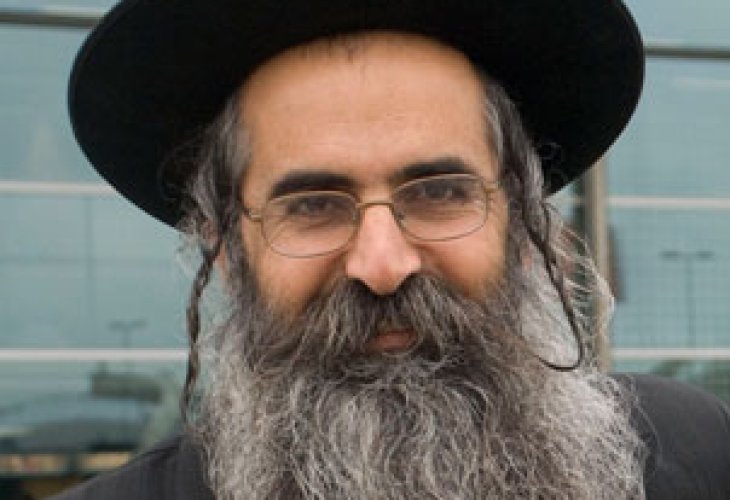Personal Stories
Rabbi Yuval Ashrov: Where Kabbalah Meets Health
How one rabbi blends Torah wisdom, Kabbalah, and natural medicine to bring healing to body and soul

Rabbi Yuval HaCohen Ashrov was born in Tel Aviv in the late 1950s. Before becoming a well-known spiritual leader, he was simply Yuval, a young student studying physiotherapy at Tel Aviv University. After completing his degree, he realized he had only explored the physical side of healing. Something was missing. He wanted to go deeper.
So he packed his bags and set out on a journey abroad. In the United States, he spent three years studying Chinese medicine, while also beginning to teach Torah classes in the local Jewish community. That’s when everything began to connect.
“In one of my classes,” Rabbi Ashrov recalls, “a student told me about a rabbi in Israel with a unique vision for combining Torah with natural medicine.” Not long after, he returned to Israel and met that very rabbi who would become his teacher. Inspired by their meeting, Rabbi Ashrov dove into teaching the mystical teachings of the Baal HaSulam, a leading Kabbalistic thinker. He moved to the small, spiritually focused community of Or HaGanuz in northern Israel, a village founded by baalei teshuvah (Jews who returned to religious life) with a strong vision of spiritual renewal.
Since then, much has happened. Rabbi Ashrov is now marking 25 years of Torah learning and 20 years of practicing natural healing. His lectures cover everything from Kabbalah and Jewish mysticism to relationships, prayer, personal growth, and holistic health. He also serves as the head of Ilama College, a school for complementary medicine guided by Torah values.
How do you bring together the roles of rabbi and nutritionist?
“People are always searching for the secret to good health. Most of the time, we treat symptoms instead of addressing the root cause. In natural healing, once you remove the source of imbalance, the body begins to heal on its own. It’s very similar to the Jewish idea of klipot, a spiritual shells that cover the soul. When you remove those barriers, the soul shines. The same principle works in both realms, spiritual and physical.”
What does your daily routine look like?
“I begin with morning prayers around six or seven. Then it’s off to the college or treatment center. In between, I give lectures or teach classes. Later comes rest and then study, often in the early hours of the morning. Sometimes I learn at two or three a.m., sometimes before dawn.”
Why study at such early hours?
“There’s a special spiritual energy at night. The Sages teach that at night, a thread of divine kindness rests on those who study Torah. It’s an ideal time to study hidden wisdom like Kabbalah. Daytime is for learning practical texts. But the night? That’s when the soul opens.”
It’s said that many celebrities attend your lectures. Why do you think they’re drawn to your teachings?
“Some are hesitant to be seen at lectures like this, but many come anyway. People like Yael Bar Zohar, Eden Harel, and Oded Menashe, they sit quietly in the audience and listen. At the end of the day, they’re just regular people seeking meaning, like anyone else.”
How did you come to lead a college for Jewish-style complementary medicine?
“When the community of Or HaGanuz invited me to teach, I was still working at another college. Their rabbi encouraged me to accept. The classes quickly became popular, and the small space they had was no longer enough. So they built a new building, and that’s how the college grew. Today, Ilama College has around 300 students.”
That sounds like a very busy life. What gives you the strength to keep going?
“I think there comes a time in life when you realize that we’re only here for a short while. We’re meant to help others, to bring goodness into the world. If a day passes and you haven’t helped someone then you should be concerned.”
Every rabbi has a rabbi. Who is your teacher?
“My teacher is Rabbi Mordechai Sheinberger. He reminds us how to live a good and meaningful life. He doesn’t just speak, he lives it. He teaches by example: serve others, give generously, step back from ego. He’s our guiding light, the one who showed me that you don’t have to understand everything right away. Just start doing it and the understanding will come.”
As our conversation neared its end, Rabbi Ashrov shared what he calls his six “iron rules” for maintaining a healthy body and a healthy soul:
1. Don’t eat until you’re full.
2. Don’t pile food on top of food. Wait at least an hour between meals. It affects not only your digestion but also your spiritual clarity.
3. Don’t delay when your body needs something. If you need the bathroom—go. Holding back can cause harm, physically and spiritually.
4. Exercise is essential. A brisk 30-minute walk or 10 minutes of swimming that gets your heart and lungs moving—do this at least once a day.
5. Let vegetables be the majority of your meals. About 60% to 80% of what you eat should be vegetables.
6. Beware of the “two killers”—sugar and salt. Sugar harms quickly. Salt does so more slowly, but both are dangerous when overused.

